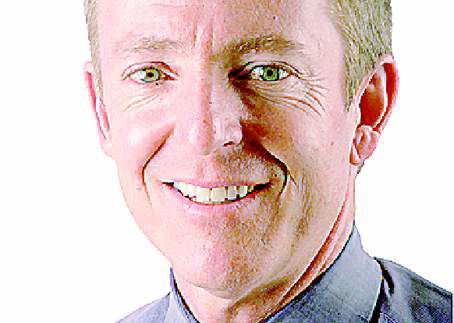Building trust in oneself and in business
Published 5:00 am Sunday, March 15, 2009

- Some signs of the times
Trust.
People could logically assume it’s in short supply in business these days based on stories like Bernard Madoff’s nearly $65 billion Ponzi scheme that bilked thousands of people.
Locally, investors who trusted their money with Tami and Kevin Sawyer are wondering if they’ll get repaid. So are people who trusted their real estate proceeds with Bend’s Summit 1031 Exchange, which filed for Chapter 11 bankruptcy.
Salmonella-tainted peanut products infiltrated the U.S. food system, leaving people wondering if they could trust that peanut butter and myriad other products with peanuts were safe to eat, let alone trust the food safety inspection system.
The list goes on and on.
According to the 2009 Edelman Trust Barometer, trust in U.S. business among people ages 35 to 64, at 38 percent, is the lowest in the 10 years the trust and credibility survey has been conducted for Chicago-based Edelman, which bills itself as the world’s largest independent public relations firm. The banking and automotive industries, which sought government bailouts, led the decline in trust, the report noted.
On a global basis, 62 percent of 25- to 64-year-olds surveyed in 20 countries trusted corporations less than they did a year ago, the report said.
“When it comes to being distrusted, business is not alone,” the report said. “Globally, trust in business, media (ouch) and government is half-empty; and trust in government scores even lower than trust in business.”
The findings affirm that “trust affects consumer spending, corporate reputation and a company’s ability to navigate the regulatory environment,” according to the Edelman report.
Which brings me back to Bend.
Until a couple weeks ago, Robert Killen, 42, was a branch manager for Columbia River Bank in Bend, in the trenches of an industry going through tremendous upheaval. Last year, when he saw the economic climate changing and saw trust failing, he saw a need to help people rebuild trust in themselves and others.
He saw an opportunity to help more people than he could in banking and began formulating ideas for a new business, Apex Development Network, as a new model of professional development founded on the principle of trust.
He believes strongly enough in his vision that he quit a good job to pursue his vision. No small feat for a man with a family. His supportive wife is a teacher and they have three boys.
One aspect of Apex is a new kind of lead-generation group that would incorporate many of the skills he learned through Toastmasters International, an organization that helps people improve their public speaking. Toastmasters has a fantastic way of presenting information, he said.
Killen, an accomplished public speaker who was among 10 finalists in Toastmasters International’s 2007 World Championship of Public Speaking, wants to help members who join his group identify the stories that best describe themselves. People who tell stories make better connections with their listeners than those who simply share facts, Killen said. Storytelling gets others to experience what you’ve experienced or want them to experience, said Killen, who’s promoting storytelling for business purposes.
“The more we know about a person, the more likely we are going to be to trust them with our business,” he said.
He envisions people in his group, perhaps 15 to 25 strong, sharing stories that will connect them with fellow members, who in turn will become potential lead generators for each other outside the group.
Lead groups, of course, are nothing new.
“But there (aren’t) any, as far as I can tell, that specifically use this model of building your professional stories as the basis for establishing a greater and deeper trust,” Killen said.
While lead-generation is one aspect of Apex, the core is helping people rebuild trust in themselves and their abilities, particularly their self-confidence in communication, he said. When economic times were rocking and money was raining down everywhere, people spent less time improving themselves through professional development, he said. Apex has a multipart curriculum that will help people do that.
Also, years ago, people only did business with those they trusted and Killen believes people have gotten away from that because, as money flowed, people didn’t think as much about the underlying passions of the people they did business with as long as the end result was OK. He thinks that’s one of the reasons people are pulling back in the economy today: They don’t know whom to trust.
That trust, the Edelman report shows, is low.
I’m not qualified to evaluate Killen’s program, but much of what he says makes sense. I was intrigued by Killen believing so strongly in his ability to help people, using experiences that have guided him in banking and public communication, that he chose to leave a comfortable position to pursue his passion full time. That takes trust and confidence in one’s ideas. For me, it was one person’s story worth telling.






